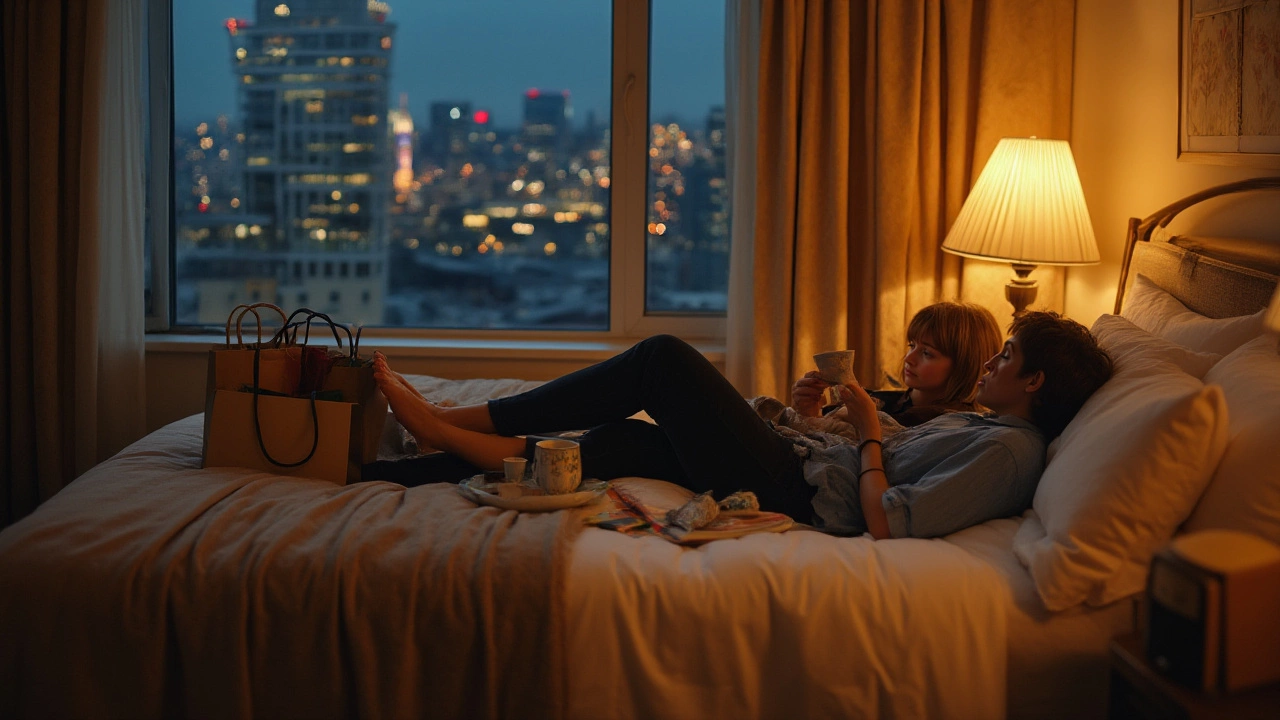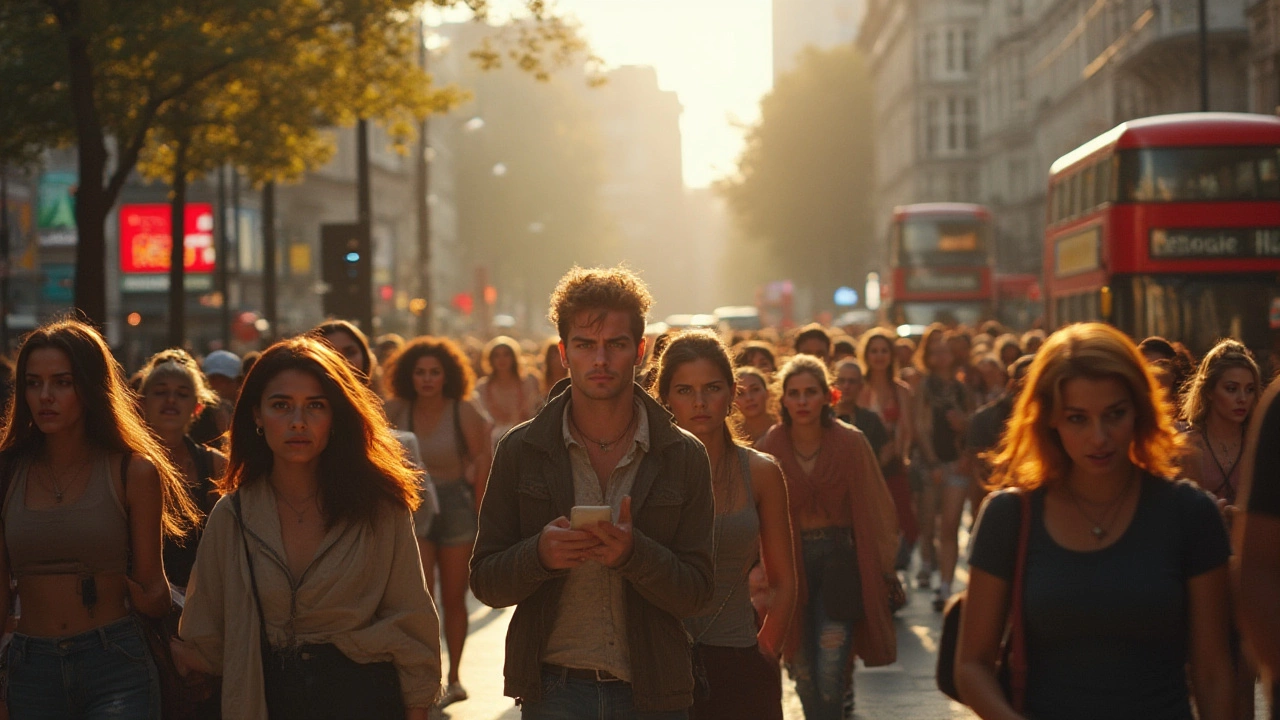You know that feeling when you come back from a weekend city break and you need another vacation to recover? You’re not imagining it. There’s something oddly draining about squeezing the life out of 48 hours in a new city—so why do we keep doing it to ourselves? It seems like a quick getaway should refresh us, but for a whole lot of people, the opposite happens. There are some eye-opening reasons behind this travel fatigue, plenty of ways to change how you approach these trips, and some tricks to actually come home energized for once.
Why City Breaks Can Be So Draining
The short answer? City breaks concentrate a week’s worth of exploring into just a handful of days. It’s like trying to binge-watch three seasons of a show in a single afternoon: intense, non-stop, exciting but overwhelming. Urban escapes ask you to be constantly “on”—navigating foreign streets, keeping an eye on your bag, searching for landmarks, checking Google Maps, standing in long lines at tourist hotspots, and trying not to look too lost. According to a 2023 survey from Lonely Planet, more than 58% of city-break travelers reported coming home feeling physically more tired than when they left. Not exactly the post-trip glow you see on Instagram.
But let’s dig deeper. Cities are loud—think sirens, traffic, chattering crowds. That noise isn’t just annoying; it ramps up your stress hormones. Then there’s the overstimulation. Neon lights, ads everywhere, the chaos of metro stations, art galleries, endless choices of food, coffee, shops. Human brains are wired to notice novelty, but too much novelty, too fast, actually exhausts your attention span. The term for this? It’s called decision fatigue. By the time you’ve decided if you want the Louvre or the Musée d’Orsay (you secretly want both), you’re mentally wiped.
Sleep also takes a hit. Ever tried to snooze in a hotel room facing a main street or under a squeaky air conditioner? Or maybe the time difference is more brutal than you’ll admit. Studies done by the Sleep Foundation show that even a single night of poor-quality sleep can make you cranky and slow your reaction time. String together two or three bad nights, and you aren’t exactly your best self on that walking tour.
Physical activity is another sneaky culprit. Many travelers average 20,000 steps a day in cities like Rome or Tokyo—often double what they do at home. A 2022 Statista report found that sightseeing travelers walk an average of 14 kilometers (8.7 miles) over a two-day city trip, not counting museum marathons (standing is surprisingly tiring) or sprints for metro trains. These stats aren’t just trivia—they’re a reminder that your body needs way more recovery time on urban escapes than you might think.
The Science Behind Travel Fatigue
Ever wondered why you feel so wrung out, even if all you did was stroll from café to cathedral? There’s actual science behind that post-trip crash. Let’s break it down.
First, all the things you do on a city break—walking, navigating, socializing—are cognitively demanding. According to Dr. Andrew Franklin, a psychologist who specializes in travel stress, the constant need to focus, make quick decisions, and adapt to new information keeps your brain in a state of low-level alert. Your body kicks out low doses of cortisol, also known as the stress hormone, from sunrise to well after sundown. Add in the body’s response to unfamiliar food, dehydration (those cocktails aren’t helping), and jet lag for international trips, and you’ve got a recipe for feeling irritable and exhausted.
If you’re traveling in a group, there’s another layer. Group travel means compromise—debating what to do, catering to different energy levels, chasing a dinner reservation, sorting out the bill or metro tickets. It’s social juggling, and studies from the University of Surrey show that just planning logistics with friends or partners can spike your mental workload by up to 30%. That’s why you hear stories from people who vacationed with friends and ended up fighting over spaghetti alle vongole in Venice.
Here’s a table to make the science pop:
| Factor | Effect on Energy | Supporting Data |
|---|---|---|
| Noise Levels | Increase in stress hormones | World Health Organization: chronic noise causes fatigue, poor mood |
| Decision Fatigue | Reduces self-control, mental clarity | Stanford researcher Roy Baumeister: hundreds of daily travel choices deplete mental energy |
| Poor Sleep | Sluggishness, low motivation | Sleep Foundation: just 2 nights of poor sleep increases fatigue by 30% |
| Physical Overexertion | Muscle soreness, reduced stamina | Statista: 14km walking average per city trip |
To put it bluntly, city breaks can be their own version of an endurance challenge. The glitzy photos don’t show blisters, yawns, or the arguments over which metro line to take. But that’s the real city break experience for most people.

Ways To Make Your Next City Break Less Exhausting
If city breaks feel more like urban obstacle courses than fun escapes, you’re not stuck in that cycle. Smart tweaks can flip the experience on its head. I’ve learned this the hard way after losing entire afternoons to nap attacks in cities that should have left me buzzing. Here’s what actually helps.
- Pace Yourself: Don’t try to pack Paris, Rome, and New York into one weekend. Limit yourself to one or two neighborhoods a day. If your feet start aching, it’s a sign—stop for a coffee, a nap, or even just to people-watch.
- Prioritize Rest: Block out a chunk of time for doing “nothing.” I know, you’re in a new city, it feels wasteful. But a hotel siesta or an hour in a park can recharge you better than any energy bar.
- Quality Over Quantity: Choose a handful of “must-see” spots, and actually savor them. Rushing through a museum or an old market just to post it on social media? You’ll remember way less and feel way more drained.
- Eat Smarter: Snack regularly and drink way more water than you think you need. Urban travel means lots of salty foods and dehydration sneaks up—especially with alcohol or coffee. Locals often carry water bottles, and there’s no shame in following suit.
- Build In Buffer Time: Book an easy extra night if you can, even if it means returning home first thing Monday. You’ll feel more rested and avoid the dreaded travel-Sunday panic.
- Sleep Prep: Earplugs, blackout masks, and apps with white noise are underrated heroes. Ask for a quiet room away from elevators or main roads. A good night’s sleep in an unfamiliar place is priceless.
- Limit Screen Time: Yes, Google Maps is your best friend, but turn off notifications for a while. Scrolling through FOMO-inducing travel posts can leave you more drained and anxious.
- Go Off-Peak: If your schedule allows, visit cities midweek or outside main tourist seasons. Fewer crowds = less stress, shorter lines, and a softer hit to your energy reserves.
Mix and match these tips, and your next city break could actually live up to its “break” reputation. Remember that trips don’t have to be marathon races, and it’s perfectly valid to design yours around what feels good, not what the guidebook says.
Recovering from an Exhausting City Break
Maybe you’re reading this after limping home from Berlin or Lisbon, with a phone full of photos and zero motivation to get off the couch. Recovery is its own art, and most people do it wrong by simply trying to jump right back into their routines. That’s just a fast lane to burnout. So here’s how to do it better:
- Give Yourself Buffer Space: After your trip, don’t book social events or stack your work calendar with meetings. Even half a day at home, unpacking slowly, goes a long way.
- Reset Your Sleep: Shift bedtime or wake-up time by half an hour each day if you’ve crossed time zones. Use whatever helps you drift off—low light, soothing music, or melatonin (just check with your doctor first).
- Eat “Homey” Foods: Simple meals you know and love will help your digestive system bounce back. Skip heavy takeout for a couple of days.
- Move Gently: Those 14 kilometers of city walking leave their mark. Gentle stretches, a short walk in the park, or some yoga will speed up recovery better than collapsing for hours on the sofa.
- Mood Reset: Actually look through your photos and jot down a few notes—not just for the memories but to help your brain process the trip as “complete.” It helps draw a line so you can move on with a sense of satisfaction.
Quick fixes rarely work, so give yourself permission to feel all the ways—happy, tired, and maybe a little dazed. If you’re dreading your next city break because of past burnout, remember: you can always design your adventures differently. The best city breaks aren’t about conquering the map, but about finding the tiny joys in the rhythm of a place—even if you spend most of your time sitting in the shade, just watching the world go by.
